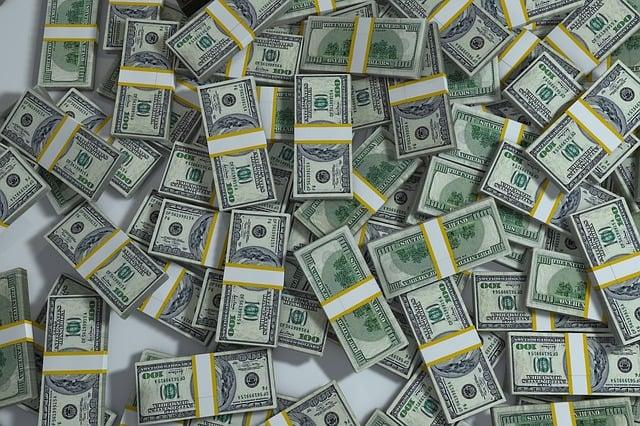When government (mis-)manages your money
“When government over-extents and reaches into the private economy, into our independent and individual lives, a balance has been broken.”
Few understand the interactions connecting prices, inflation, economic stagnation, and monetary policy. Fewer still are those who care. Economic theory is a topic that’s like looking into a mirror, where right is left and left is right. That said, every person is deeply affected by economic and federal policy.
Monetary policy affects everyone in long term, often in disastrous ways. Getting to the source of a policy mistake takes a firm grasp of history and the relationship joining various and numerous elements that make up an economy. It is as convoluted as the relationships between people.
Economics is truly the study of both human nature and of cause and effect, variously called unintended consequences, or what is seen and not seen (Bastiat). As Sir Isaac Newton observed in the study of motion, “for every action there is an equal and opposite reaction.” This natural law is true in both science and economies.
Take inflation for example. We are painfully aware of the cost of hyperinflation today because we all suffer every time we pay for something. We pay many more dollars for the same basket of commodities than a few years ago. Our dollar doesn’t “go as far.”
The decline in dollar buying power is inflation. The decline in the dollar is a direct result of policy decisions made years ago by employees of the government.
Inflation started fifteen years ago through a short-sighted mistake in monetary policy by the president, Congress, the Federal Reserve, and the Treasury. They decided that rather than allow the private economy to grow naturally, which means free of interference, they would prop up and stimulate the economy through printing more U.S. dollars.
These excess dollar bills were used by Congress and the administration to spend more money on entitlement programs — handouts — to ensure their re-election. Like all Keynesians and adherents to Modern Monetary Theory, they believe that a dollar spent by the government is better. If $1 is good, then why not print $8 trillion? Does anyone today believe that bigger-government politicians have our best interest in mind when they pay people not to work? It may be legal, but it is still criminal.
For every effect, there is a cause. The cause is excess dollars in circulation. The effect is devaluation of all dollars and the resultant inflation we suffer today.
Inflation is a tax on every dollar. Inflation is a direct result of Federal Reserve monetary policy. Therefore, the Fed has managed to tax every citizen by devaluing the dollars we own. Strange — one thought that only Congress can inflict taxation. Guess they didn’t read the Constitution.
There is a deeper psychology at work here. Remember: economics is the study of human nature, of interactions between people and governments. Herein lies the great divide.
Many bureaucrats and politicians think most economic solutions derive from government’s intervention, not from private economic activity. This dichotomy is a fundamental chasm between two highly disparate groups: those who are dependent on a government and those who prefer independence.
Those who wish for dependency find jobs in government or seek entitlement payments. Those who require independence, freedom, liberty, usually find jobs in private industry, where meritocracy gains them advancement. Both are needed in a functioning society. One is not better than the other — just different.
That said, when government overextends and reaches into the private economy, into our independent and individual lives, a balance has been broken. In order for our nation to survive and our free economy to thrive, we must demand that balance be re-established. One other maxim: Our nation’s strength resides in a thriving private economy. Government takes; taxpayers pay.
In the case of dollar devaluation, which is inflation, we must insist that government reduce the number of dollars in circulation. This inexorably requires that Congress severely reduce federal spending as it reduces dollars in circulation.
In order to rebalance our relationship with government and the individual citizen, we must free up private enterprise to naturally grow our economy by reducing federal interference like excess money supply, regulation, taxation, and spending.
Jay Davidson is founder and CEO of a commercial bank. He is a student of the Austrian School of Economics and a dedicated capitalist. He believes there is a direct connection joining individual right and responsibility, our Constitution, capitalism, and the intent of our Creator.

Image via Pixabay. Pixabay License.
FOLLOW US ON
Recent Articles
- Bureaucratic Displacement in College Institutions
- For Ordinary People, Trump Is The Man Who Will Save The West
- Starmer Wants Trump’s Free Trade Deal—But Free Speech Comes First
- Here is the One Thing Trump Needs to Do That Changes EVERYTHING: Prove the 2020 Election was Stolen
- President Trump Fights Back
- Weaponizing Immigration: Lawfare by Class Action Threatens Our Republic
- Jesus and Academia
- Katy Perry, Astronautesse and Unifying Force
- Small Business and Cybersecurity
- No One Is Above the Law—Including Letitia James
Blog Posts
- Another left-wing propaganda minion moves the goalposts
- Austin Metcalf’s dad attends Anthony family press conference, gets ejected as his presence is ‘disrespectful’
- Hawaii Supreme Court finds it trumps the U.S. Supreme Court
- The Christian life in tandem with Christ: Good Friday
- Don’t be fooled by another Iran deal
- After the quake, Myanmar prays
- Yes, they’re peasants. That’s exactly the problem.
- For democracies, Islam may provide the ultimate irony
- Truman did it. Why can’t we let Musk try?
- The U.K. gets it right: ‘Trans’ women are not women
- The left cannot and will not stop itself
- Please don’t lower the rim!
- Is there a moral imperative in trade?
- Kilmar Angel, you're no angel to me
- Hamas can no longer afford to pay for its pot-bellied terrorists -report






